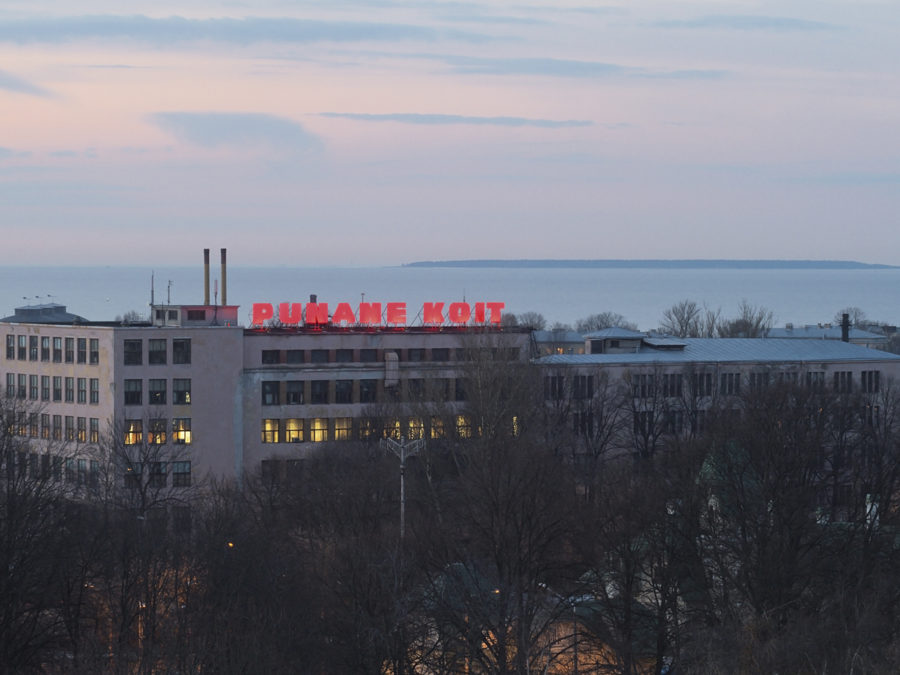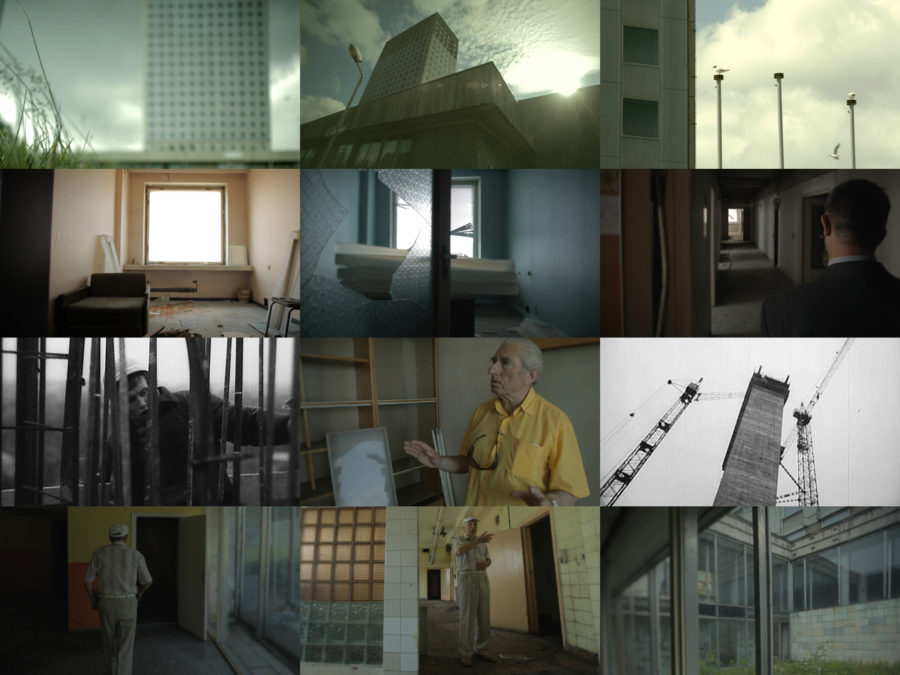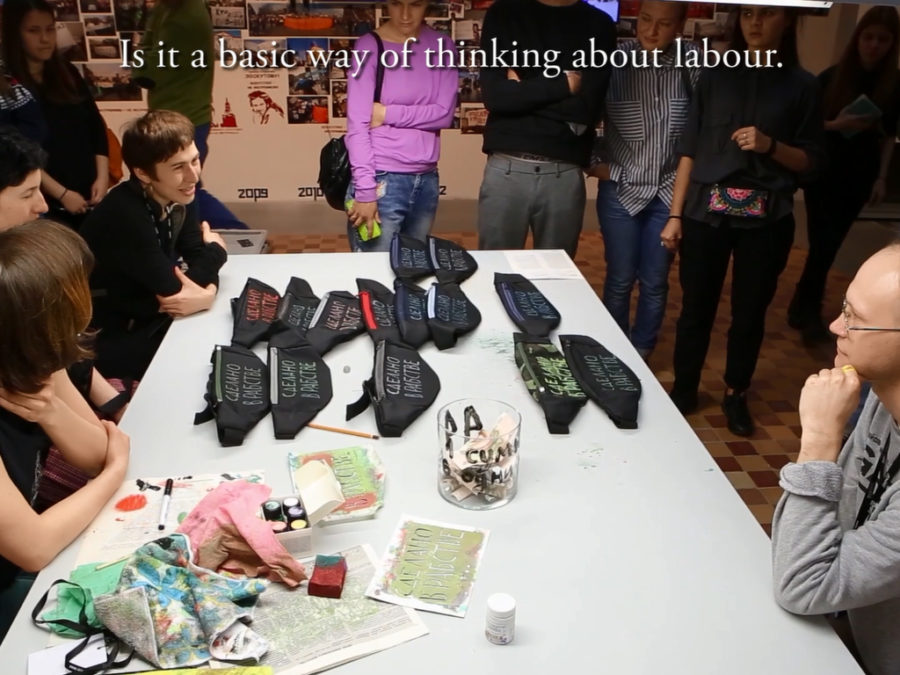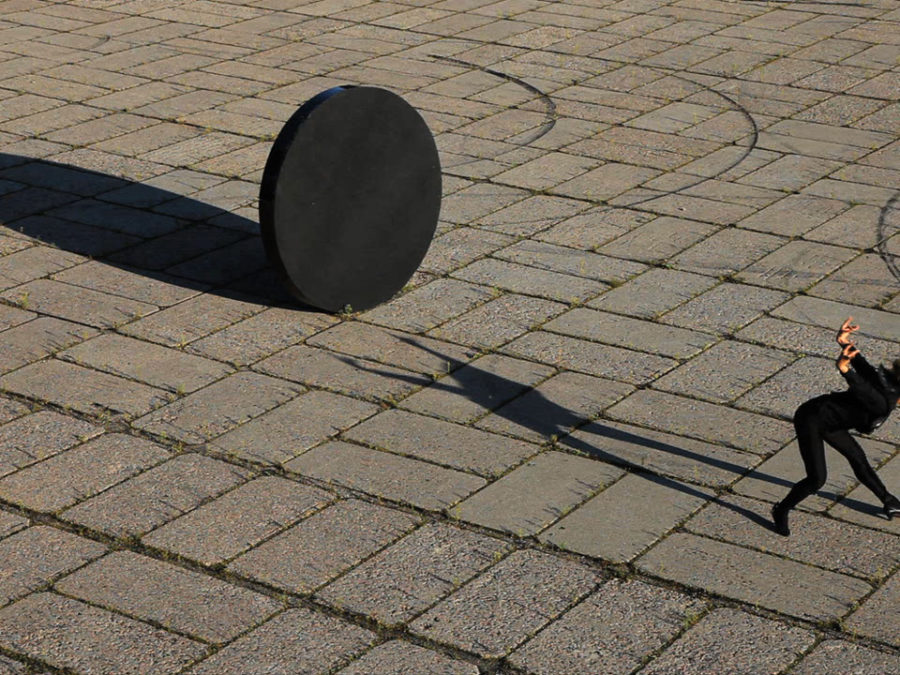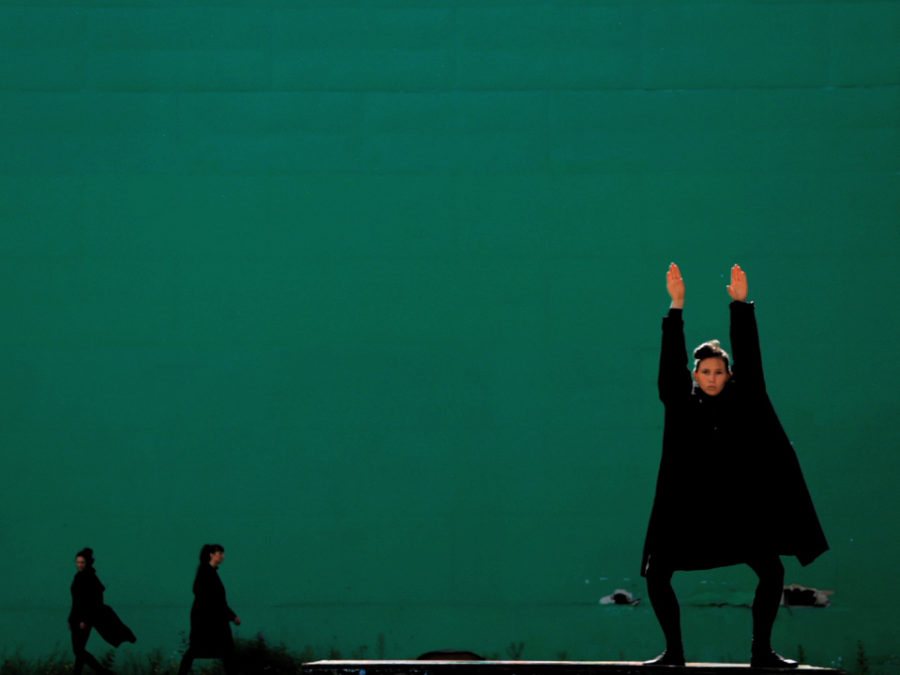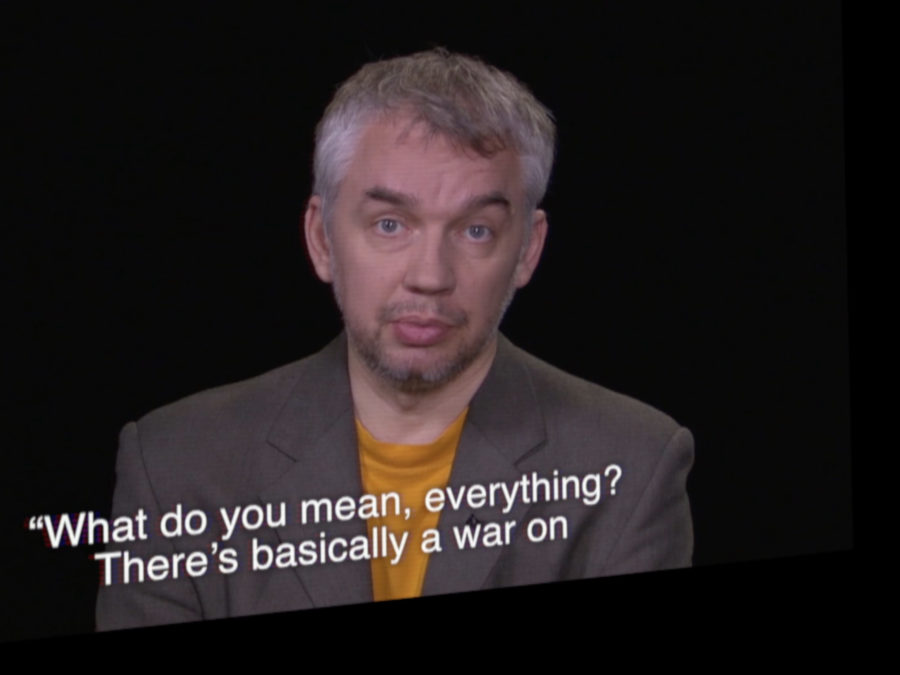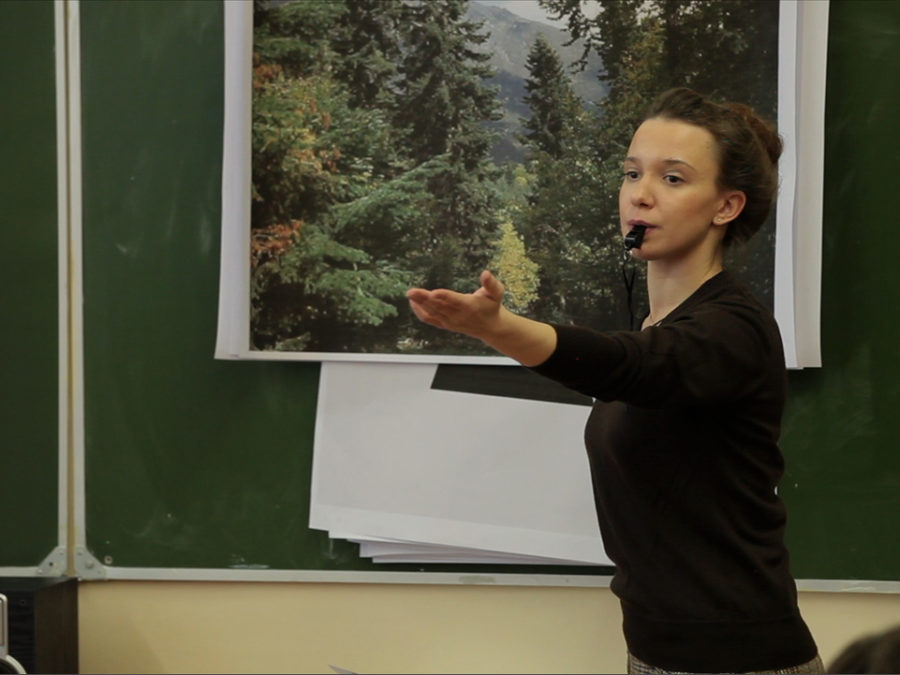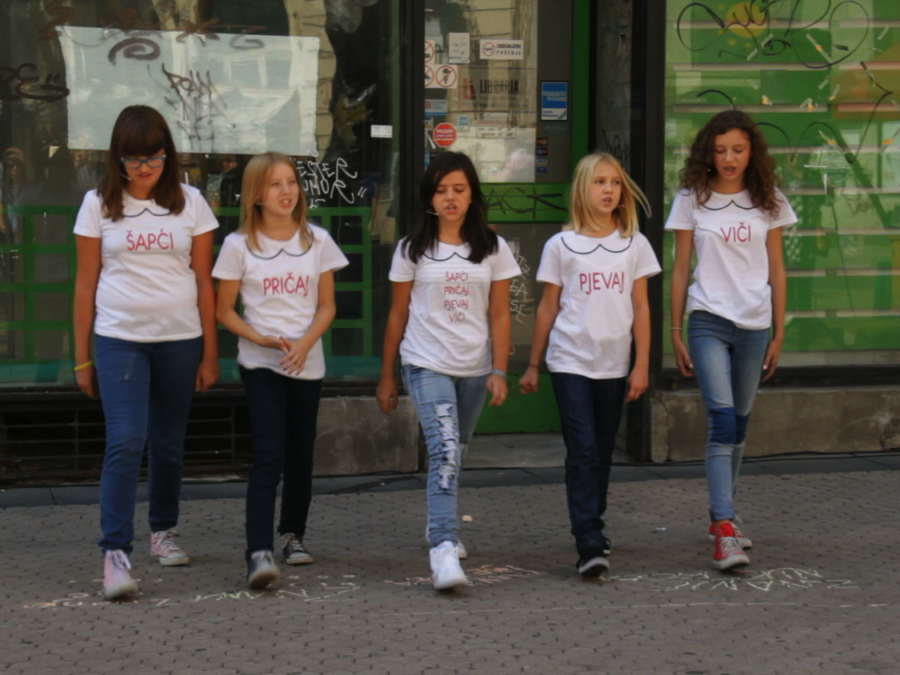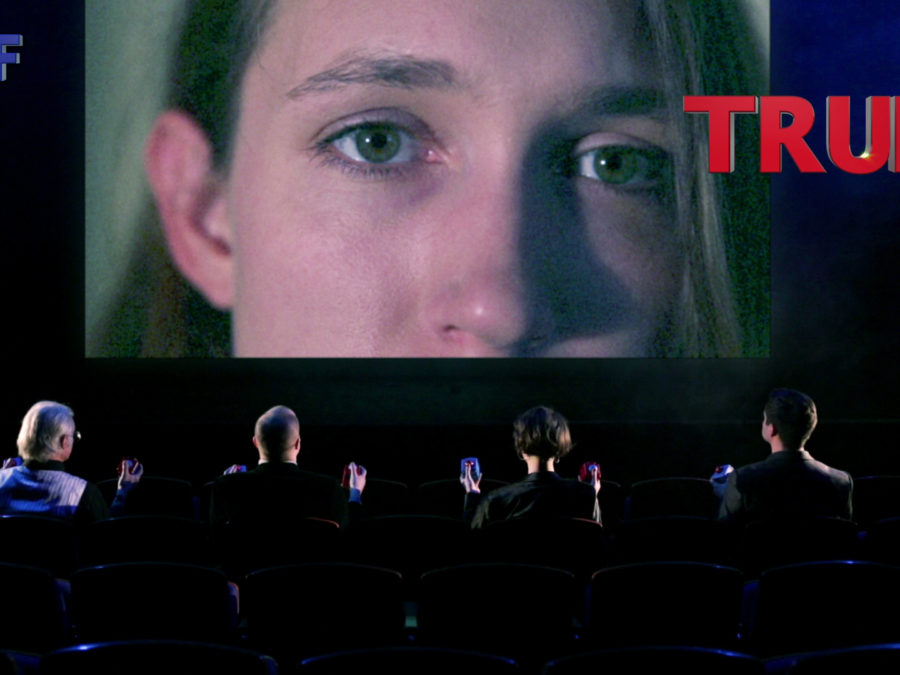The changing role and function of language before and after the “transition” cannot be discussed without considering the dimension of authoritarian speech acts in the last phase of socialism. Anthropologist Alexei Yurchak shares the observation that during the authoritarian speech act, sign and reference, language and gesture, word and action merge into each other. This thesis is the foundation for an understanding of the variety of linguistic and performative experiments in post-socialist video art. This chapter focuses on works that reflect upon shifts in language and meaning and employ diverse silent, verbal, performative, activist, and other strategies to discuss collective and personal memory, identity, power relations, gender roles, and socio-political change.
The themes of feminism, labor, and workers’ rights are central to the Russian-Ukrainian Shvemy Sewing Cooperative. Often choosing performative formats, in 12–Hour Working Day Shvemy deploys the language of bodies to articulate capitalist modes of production and deal with the labor conditions of female* workers from developing countries, which serve major Western clothing brands. Several works also play out the relationship between language and architecture, often referring to landmarks related to Soviet ideology. CORO Collective use modern, Soviet architecture as the backdrop for a fashion performance and discursive wordplay. Marge Monko restores the sign lettering to a Soviet factory Red Dawn, querying if the communism-related moniker raises different associations now. Katrīna Neiburga focuses on the personal stories of former employees at Press House, intertwining the past symbol of the state media and propaganda position with accounts of friendships and affairs. The pressures of propaganda and ideology on a child growing up in Soviet Uzbekistan is central to the work of Ira Eduardovna, which revolves around her family history. Her work addresses the idea of fragility and the variability of personal and collective memory. Željka Blakšić aka Gita Blak challenges notions of voice and the right to speak. She collaborates with activists composing lyrics for protest songs, which are later performed by teenage girls. In contrast, Polina Kanis’ video discursively approaches the lack of opportunities for critical thinking and diversity of opinion in the Russian education system, which has grown more controlling and patriotism-oriented in recent years. The emergence of repressive ideology in the region and changing power dynamics between countries that were once united in the past compel Gluklya to search for a language to voice the complexity of the post-Soviet conditions. Her performance Debates on Division is formed around personal stories about significant pieces of clothes, narrated by different individuals.
